
Kód: 08242248
Political Restrictions on Operational Fires in the Post World War II Environment
Autor John D Dill
This monograph asserts that the United States military conducted World War II with few restrictions on its firepower beyond those imposed by the International Rules of War. An unlimited war justified unlimited fires, including the ... celý popis
- Jazyk:
 Angličtina
Angličtina - Vazba: Brožovaná
- Počet stran: 58
Nakladatelství: Biblioscholar, 2012
- Více informací o knize

Mohlo by se vám také líbit
-

On the French Revolution. by Mr. Necker. Translated from the French. in Two Volumes. ... Volume 1 of 2
1086 Kč -

Selima, or the Village Tale, a Novel, in a Series of Letters, by the Authoress of Fanny. in Six Volumes. ... Volume 5 of 6
629 Kč -

Alfred the Great; Deliverer of His Country. a Tragedy. by the Author of the Friendly Rivals.
429 Kč -
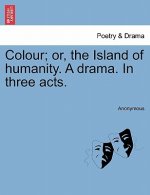
Colour; Or, the Island of Humanity. a Drama. in Three Acts.
429 Kč -

Poems ... Tenth Edition.
718 Kč -

Esher Place. with a Brief Account of Bishop Waynfleet ... and Robert Lord Clive ... Surrey Arch Ological Meeting, Saturday, June 17th, 1893.
429 Kč -
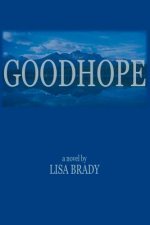
Goodhope
620 Kč
Darujte tuto knihu ještě dnes
- Objednejte knihu a zvolte Zaslat jako dárek.
- Obratem obdržíte darovací poukaz na knihu, který můžete ihned předat obdarovanému.
- Knihu zašleme na adresu obdarovaného, o nic se nestaráte.
Více informací o knize Political Restrictions on Operational Fires in the Post World War II Environment
Nákupem získáte 165 bodů
 Anotace knihy
Anotace knihy
This monograph asserts that the United States military conducted World War II with few restrictions on its firepower beyond those imposed by the International Rules of War. An unlimited war justified unlimited fires, including the strategic use of atomic bombs in August of 1945 to end the conflict. However, World War II proved an anomaly in the twentieth century as America reverted in the post war period to conducting limited wars. Absent a threat to national survival, policy makers ruled out the use of nuclear weapons as a serious option at the strategic level. At the tactical level, commanders had a full array of mortars, tube artillery, and air support. This closely replicated both the concept and effects of what was available to their World War II predecessors. Yet, in limited conflicts, the use of these weapons developed implications beyond their tactical battlefield effects. The monograph examines how strategic policy makers shaped the battlefield for operational fires. At one extreme, the fear of escalation provided an upper limit for field commanders in Korea and Vietnam. At the lower end of the scale, fires previously considered solely tactical in nature had operational and strategic consequences. Stability and support operations (SASO) like the United States Marine Corps intervention in Beirut in the early 1980s came with limitations on commander's ability to employ operational fires. Commanders involved in SASO faced the difficulty of using their weapons without provoking charges of disproportionate response. The monograph also discusses the effect of increased connectivity of the global information environment. For commanders after the Korean War, the results of choices they made were instantly communicated to a worldwide audience. Thus, weapons previously thought to reside solely in the tactical arena now carried an operational, if not strategic, impact. The monograph concludes by arguing that operational artists must be trained to be able to deliver o
 Parametry knihy
Parametry knihy
Zařazení knihy Knihy v angličtině Society & social sciences Education
1646 Kč
- Plný název: Political Restrictions on Operational Fires in the Post World War II Environment
- Autor: John D Dill
- Jazyk:
 Angličtina
Angličtina - Vazba: Brožovaná
- Počet stran: 58
- EAN: 9781288301799
- ISBN: 9781288301799
- ID: 08242248
- Nakladatelství: Biblioscholar
- Hmotnost: 122 g
- Rozměry: 246 × 189 × 3 mm
- Datum vydání: 15. November 2012
Oblíbené z jiného soudku
-

Oxford IB Diploma Programme: IB Economics Course Book
1594 Kč -

OET Preparation
246 Kč -

Cambridge IGCSE (R) & O Level Complete Physics: Student Book Fourth Edition
929 Kč -

Business Partner B2 Workbook
462 Kč -

Business Partner B1 Workbook
434 Kč -

Imagine If...
306 Kč -

OET Reading Subtest Preparation
343 Kč -

Vol 2 Blackletter Lettering Adventures
635 Kč -

AS & A Level Maths For Dummies
455 Kč -

CompTIA Security+ Review Guide - Exam SY0-601
621 Kč -

Amazing Autistic Brain Cards
1000 Kč -

Hanbo Jutsu: Use of Hanbo, Cane and Walking Stick for Self Defense
284 Kč -

Embodied Teen
545 Kč -

Blue Book of Grammar and Punctuation: An Easy- to-Use Guide with Clear Rules, Real-World Examples , and Reproducible Quizzes, Twelfth Edition
393 Kč -

Positive Discipline Tools for Teachers
433 Kč -

Oxford IB Diploma Programme: IB Theory of Knowledge Course Book
1466 Kč -

Oxford IB Study Guides: Economics for the IB Diploma
1120 Kč -

Speed and Accuracy: Division
210 Kč -

GCSE Spanish Exam Practice Workbook (includes Answers & Free Online Audio)
220 Kč -

KS3 Maths 10-Minute Weekly Workouts - Year 7
199 Kč -

Vertical Academy
919 Kč -

Grade 9-1 GCSE Maths AQA Revision Question Cards - Higher
241 Kč -
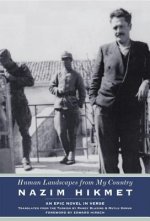
Human Landscapes from My Country
656 Kč -

Cambridge IGCSE (R) & O Level Complete Chemistry: Student Book Fourth Edition
992 Kč -

Oxford IB Diploma Programme: IB Course Preparation Mathematics Student Book
992 Kč -

1000 TRIOS or gapped sentences for Cambridge Advanced and Proficiency Exams
608 Kč -

Business Partner B1+ Workbook
462 Kč -
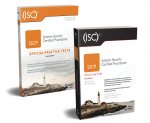
(ISC) SSCP SG & SSCP Practice Test Kit, 3e
1745 Kč -

Einkorn
519 Kč -

Czech Verbs
954 Kč -

Motivation and Reinforcement
1161 Kč -

Pearson Edexcel International GCSE (9-1) English Language B Student Book
1328 Kč -

Read Write Inc. Phonics: Red Ditty Book Bag Books (Mixed Pack of 10)
1586 Kč -

Oxford International Primary Maths Second Edition: Practice Book 1
323 Kč -

Forensic Linguistics Articles
417 Kč -

Corrected Squares of The Book of Abramelin
14513 Kč -

Exam Prep for Microeconomics by Pindyck & Rubinfeld, 6th Ed.
1089 Kč -

KS3 Maths 10-Minute Weekly Workouts - Year 8
199 Kč -

Reading Mind - A Cognitive Approach to Understanding How the Mind Reads
556 Kč -

Ganzheitliche Sprachförderung
807 Kč -

Internet Protocol over Link-16
1646 Kč -

Effect of Registration Errors on Tracking in a Networked Radar System
1646 Kč -

Princeton Review SAT Premium Prep, 2021
1141 Kč -

CEH v11 Certified Ethical Hacker Study Guide + Practice Tests Set
1869 Kč -

10 Practice Tests for the SAT, 2021 Edition
846 Kč -
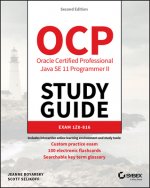
OCP Oracle Certified Professional Java SE 11 Programmer II Study Guide - Exam 1Z0-816 and Exam 1Z0-817
1336 Kč -

Prepared
876 Kč -

Powerful Teaching: Unleash the Science of Learning
665 Kč -

Physics for You
1249 Kč
Osobní odběr Praha, Brno a 12903 dalších
Copyright ©2008-24 nejlevnejsi-knihy.cz Všechna práva vyhrazenaSoukromíCookies



 Vrácení do měsíce
Vrácení do měsíce 571 999 099 (8-15.30h)
571 999 099 (8-15.30h)